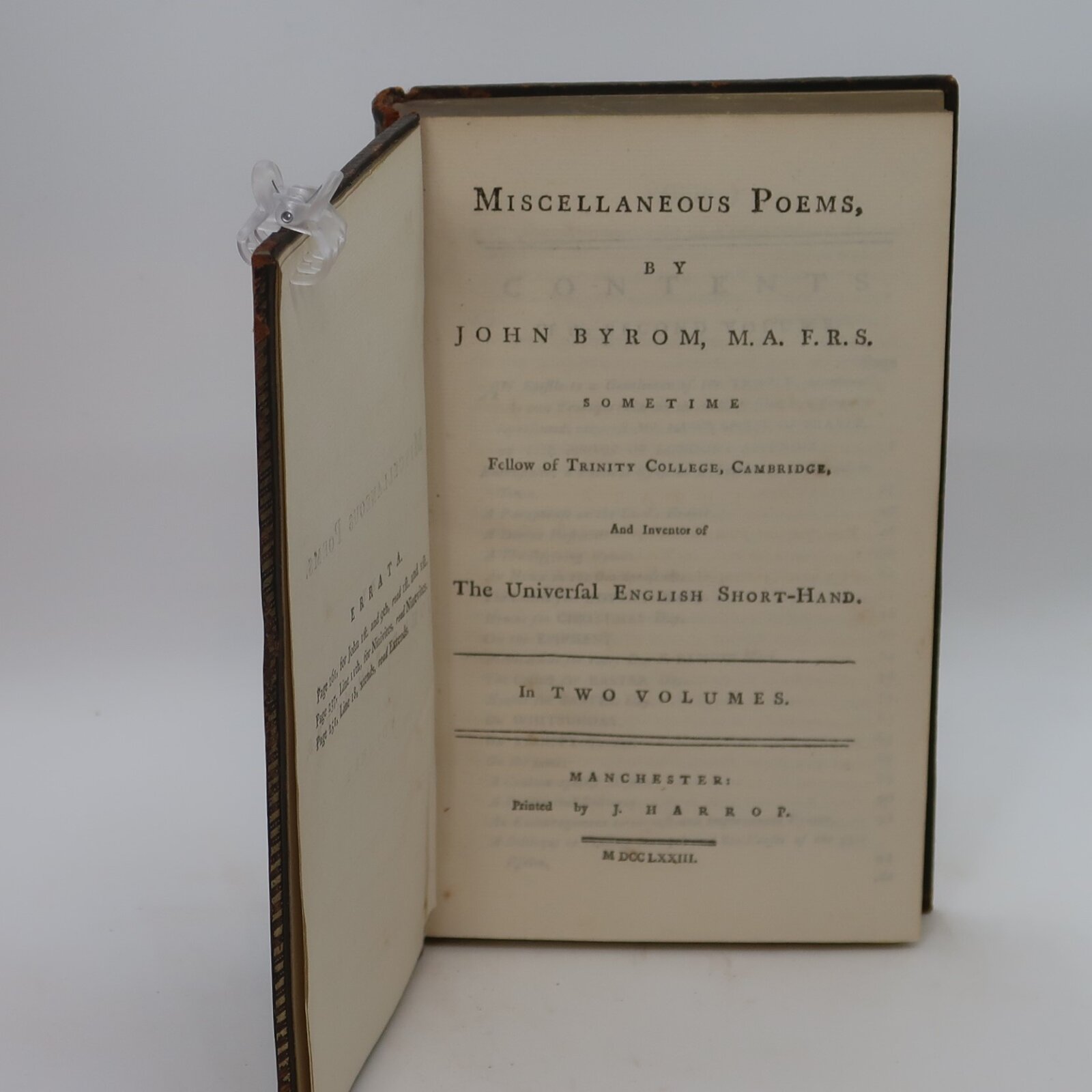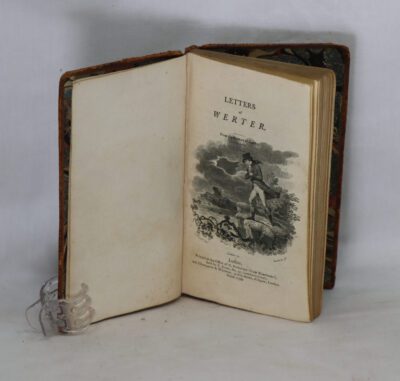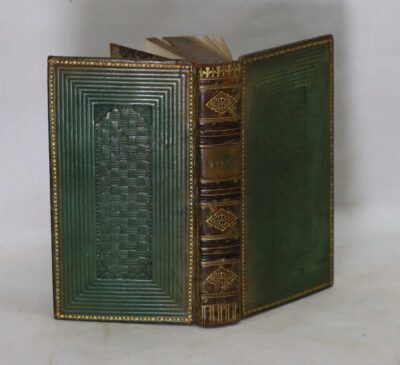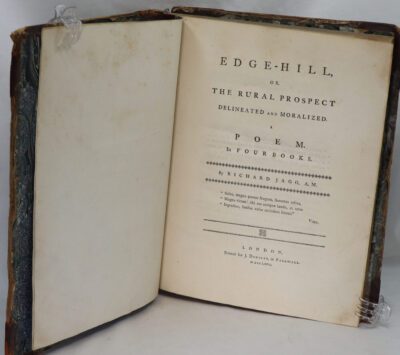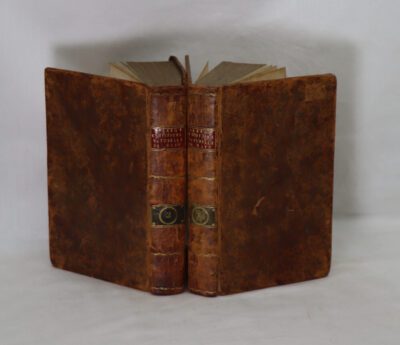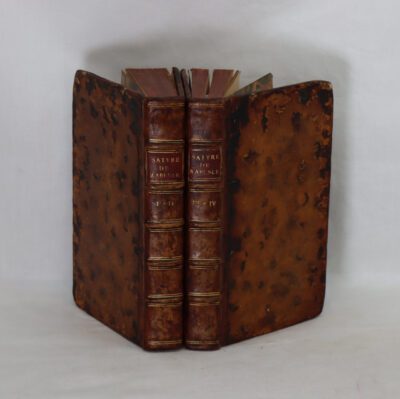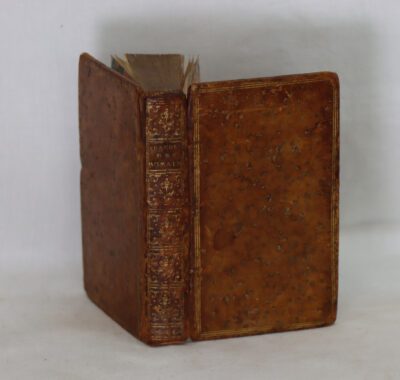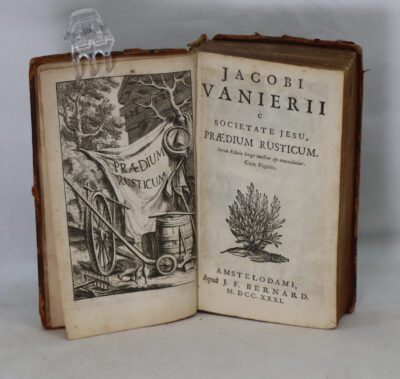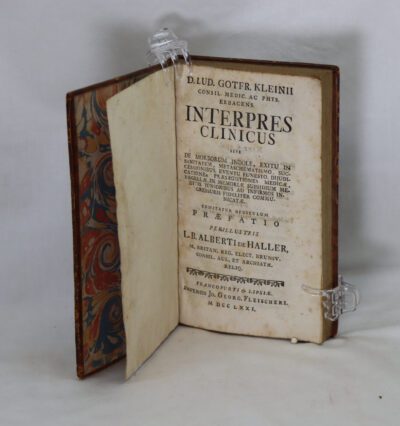Byrom. Miscellaneous Poems. Volumes 1 & 2.
By John Byrom
Printed: 1773
Publisher: J Harrop. London
| Dimensions | 12 × 19 × 2 cm |
|---|---|
| Language |
Language: English
Size (cminches): 12 x 19 x 2
Condition: Fine (See explanation of ratings)
FREE shipping
Your items
Item information
Description
Full tree calf binding with red and green title plates, gilt banding and lettering.
The 18th century was a wealth of knowledge, exploration and rapidly growing technology and expanding record-keeping made possible by advances in the printing press.
John Byrom or John Byrom of Kersal or John Byrom of Manchester FRS (29 February 1692 – 26 September 1763) was an English poet, the inventor of a revolutionary system of shorthand and later a significant landowner. He is most remembered as the writer of the lyrics of Anglican hymn Christians awake! Salute the happy morn, which was supposedly a Christmas gift for his daughter.
Although Byrom is probably best remembered for this Christmas carol, he was regarded by his contemporaries as a poet and a literary man. Most of his poems, the best-known of which is My spirit longeth for Thee, were religious in tone. Byrom greatly admired William Law and he often versified parts of Law’s prose. The printer and novelist Samuel Richardson printed poems for Byrom, some of which were found upon Richardson’s death among his manuscripts. Byrom is also remembered for his epigrams and, above all, his coinage of the phrase Tweedledum and Tweedledee (in connection with a dispute about the merits of the two composers, George Frideric Handel and Giovanni Bononcini).
Ralph Tomlinson authored a parody of John Byrom’s poem called A Slang Pastoral. It begins “My Time, O ye Muses, was happily spent,” and it was originally published in The Spectator.
Byrom did not lead an ordinary provincial life. He was a member of the Royal Society while Sir Isaac Newton was president, moving in some very influential social and intellectual circles in London and elsewhere. Modern research has revealed him to be something of a man of mystery. In the first place there is the question of his political views. It was once thought that he was a closet Jacobite, but it is now suggested that he may have acted as a double agent, the “Queen’s Chameleon”. His views might be summed up in the verse that he composed, in the form of a toast:
God bless the King! (I mean our faith’s defender!)
God bless! (No harm in blessing) the Pretender.
But who Pretender is, and who is King,
God bless us all! That’s quite another thing!
Byrom died in 1763 and is buried in his family’s private chapel, which is now known as Jesus Chapel in Manchester Cathedral, Manchester, England. His papers, though preserved for some time after his death, were mysteriously destroyed in the nineteenth century. A freemason, few surviving items have suggested that he may have belonged to an early quasi-masonic society, known as the “Cabala Club”, similar to the Gentleman’s Club of Spalding, and pursued occult interests.
His library of books and manuscripts was donated to Chetham’s Library by his descendant Eleanora Atherton in 1870.
Want to know more about this item?

Related products
Share this Page with a friend

